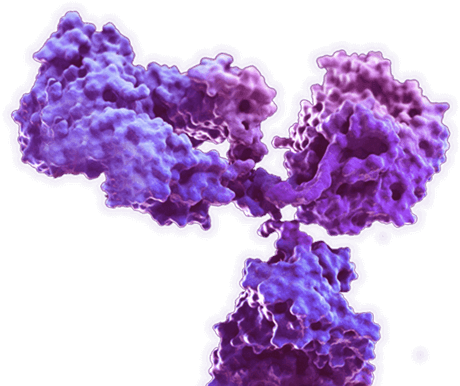Rabbit Anti-ATPF Antibody (MOFAB-290W)
Cat: MOFAB-290W
Certificate of Analysis Lookup
To download a Certificate of Analysis, please enter a lot number in the search box below. Note: Certificate of Analysis not available for kit components.
Lot Number
To download a Certificate of Analysis, please enter a lot number in the search box below. Note: Certificate of Analysis not available for kit components.
Lot Number
- Product List
- Specifications
- Application Information
- Target
| Sub Cat | Clonality | Species Reactivity | Application | Clone | Conjugate | Size | |
| MOFAB-290W | WB | 100 µg | |||||
| CBMOAB-24880FYC | Monoclonal | A. thaliana (Arabidopsis thaliana) | WB, ELISA | MO24880FC | 100 µg | ||
| CBMOAB-0217YC | Monoclonal | E. coli (Escherichia coli ) | WB, ELISA | MO0217YC | 100 µg | ||
| CBMOAB-18723FYB | Monoclonal | Rice (Oryza) | WB, ELISA | MO18723FYB | 100 µg | ||
| MO-AB-00044W | Monoclonal | Barrel medic (Medicago truncatula) | WB, ELISA | MO00044W | 100 µg | ||
| MO-AB-30219H | Monoclonal | Sugar beet (Beta vulgaris) | WB, ELISA | MO30219C | 100 µg | ||
| MO-AB-34205H | Monoclonal | Tomato (Lycopersicon esculentum) | WB, ELISA | MO34205C | 100 µg | ||
| MO-DKB-0075RA | Polyclonal | WB | 100 µL | ||||
| MO-DKB-01952W | Polyclonal | A. thaliana (Arabidopsis thaliana) | WB | 100 µg |
Specifications
| Host species | Rabbit |
| Species Reactivity | Arabidopsis, Rice, A. thaliana (Arabidopsis thaliana), A. thaliana (Arabidopsis thaliana); C. reinhardtii (Chlamydomonas reinhardtii); Spinach (Spinacia oleracea), Barrel medic (Medicago truncatula), E. coli (Escherichia coli ), Rice (Oryza), Sugar beet (Beta vulgaris), Tomato (Lycopersicon esculentum) |
| Immunogen | Arabidopsis recombinant protein ATCG00130. |
| Format | Liquid or Lyophilized |
| Buffer | 50% Glycerol |
| Regulatory Status | For Research Use Only |
| Shipping | Gel Pack |
| Storage | Store at 4°C: short-term (1-2weeks) Store at -20°C: long-term and future use |
Application Information
| Application | WB |
| Application Notes | WB: 1:2500-1:10000 The optimal dilution should be determined by the end user. |
Target
| Introduction | FF ATP synthase produces ATP from ADP in the presence of a proton or sodium gradient. F-type ATPases consist of two structural domains, F containing the extramembraneous catalytic core and F containing the membrane proton channel, linked together by a central stalk and a peripheral stalk. During catalysis, ATP synthesis in the catalytic domain of F is coupled via a rotary mechanism of the central stalk subunits to proton translocation. |
| Product Overview | The ATPF antibody can be used to detecting the species of Arabidopsis, Rice. |
| Alternative Names | ATP synthase subunit b, chloroplastic; ATP synthase F(0) sector subunit b; ATPase subunit I; atpF; AtCg00130; ATPF |
| UniProt ID | P56759 |
For Research Use Only | Not For Clinical Use.
Online Inquiry

